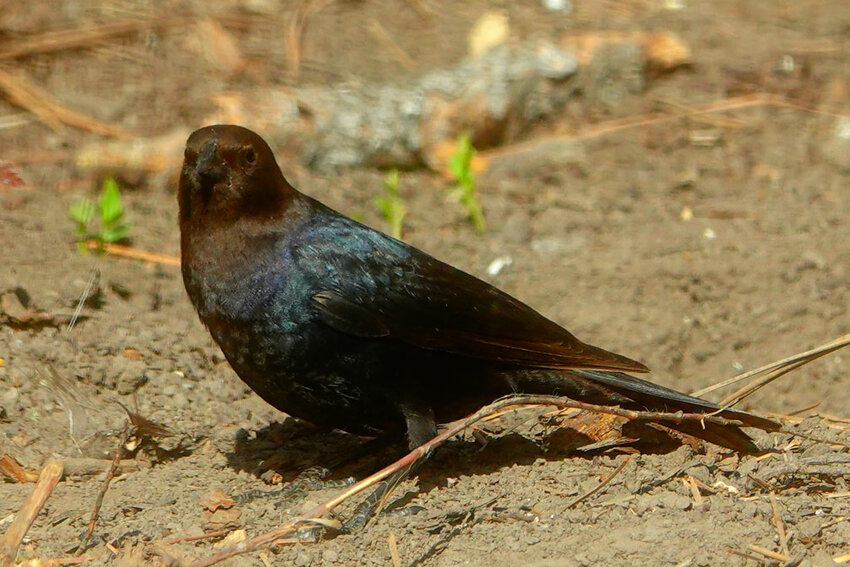
Photo courtesy Charles Martinez
This week’s Bird of the Week, compliments of the Weminuche Audubon Society and Audubon Rockies, is the brown-headed cowbird.
Some bird groups increase their reproductive success by adhering to the adage of not putting all your eggs in one basket. This is common practice among many waterfowl species which regularly sneak some eggs into each other’s nests. Cowbirds take this behavior one step further by being obligate brood parasites who never build nests, instead depositing all their eggs in the nests of other species.
When bison herds roamed the great plains, brown-headed cowbirds followed to eat the insects that they flushed. It is unknown if the unusual reproductive strategy of the cowbird was a result of, or predated and allowed, these nomadic movements.
More than 220 species of birds have been found serving as hosts to cowbird eggs. Typically, cowbird eggs hatch sooner, and the nestlings develop faster than those of the host bird. Eggs and young of the host may not survive their aggressive nestmate. Some bird species recognize cowbird eggs in their nests and destroy them, but most end up raising these strange-looking young as their own. It is not unusual to find a small mother bird dwarfed by the cowbird fledgling it feeds.
Female cowbirds may lay up to 40 eggs in as many different nests over a two-month reproductive season, but on average only 3 percent of these produce a bird that survives to adulthood. Females locate host nests by watching for nest-building activity by other birds and sneaking in to lay an egg when the resident bird is away. A female may return to host nests many times to check on the status of her eggs and young.
Brown-headed cowbirds mainly eat the seeds of grasses and weeds. If you scatter seed for ground feeders in your yard, expect to find brown-headed cowbirds there in summer. They are small members of the blackbird family, males glossy black with brown heads and females colored a plain, dusty brown.
Although they are often vilified and have caused population declines in some host species, brown-headed cowbirds are fascinating members of our birds of summer.
For information on events, visit www.weminucheaudubon.org and www.facebook.com/weminucheaudubon/.